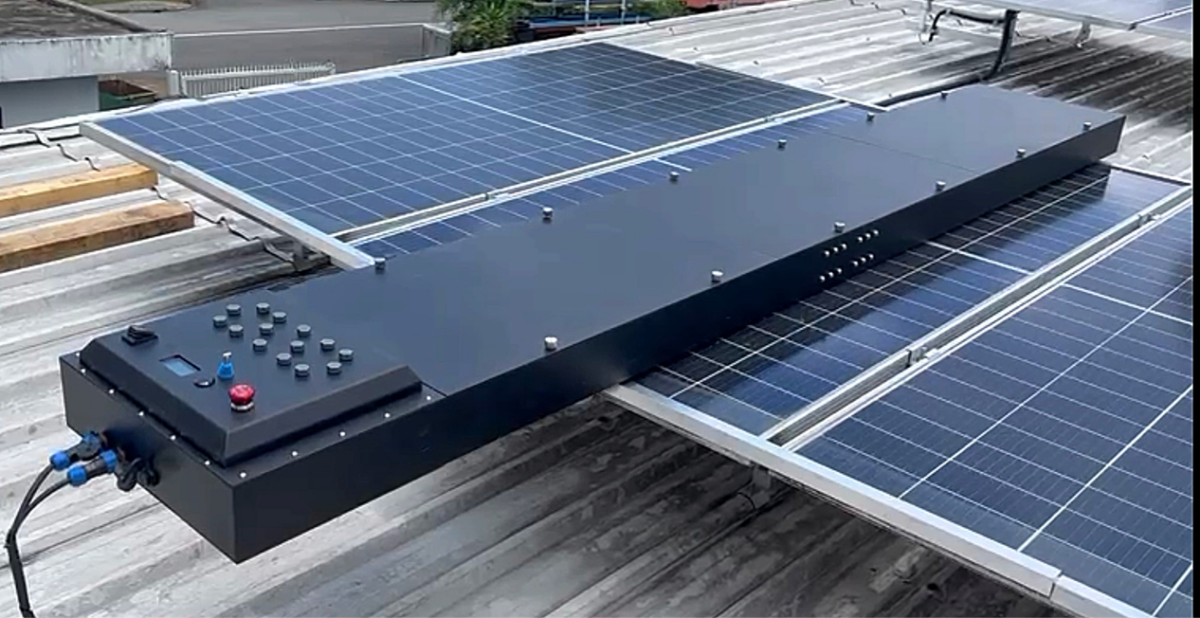Researchers from the Nanyang Technological University Singapore (NTU Singapore) and startup EtaVolt have developed a high intensity illumination device that can reportedly “rejuvenate” solar panels and reduce their degradation.
Called Advanced Regeneration Technology, the new technique consists of applying intense light and controlled temperature on the solar cells to excite the polysilicon molecules and make them move quickly. This reportedly changed their arrangement and “patches up” the holes caused by light, heat and humidity.
“The process is akin to patching holes in a bucket; it repairs solar panels to prevent energy leakage, ensuring optimal light energy collection,” the scientists said, noting that the process is implemented via a high intensity illumination device that can roll itself over the photovoltaic modules. “The process takes less than five minutes and can help treated solar panels recover up to 5% of their lost field performance.”
The research group claims that this process may reduce module degradation by up to 5 years, depending on the cell technology.
The device may also be used on-site in either rooftop PV systems or ground-mounted PV plants and may be applied to around 90% of the solar modules available in the market.
According to EtaVolt's website, the new regeneration technology is based on a proprietary combination of illumination, temperature, and regeneration time. It can also reportedly provide light-induced degradation (LID) mitigation and recovery.
“Our solar rejuvenation method has not only been rigorously tested and validated but has shown field-proven results in various commercial applications. The technology has been successfully implemented in projects with major partners in the solar industry, such as renewable energy solutions firm Vector Green, demonstrating its effectiveness and potential for widespread adoption,” said NTU Singapore researcher Stanley Wang.
The research team did not reveal more technical details about the device. “These technologies developed at NTU have been patented through NTUitive, the University’s innovation and enterprise company and are licensed to EtaVolt,” it stated.
This content is protected by copyright and may not be reused. If you want to cooperate with us and would like to reuse some of our content, please contact: editors@pv-magazine.com.




6 comments
By submitting this form you agree to pv magazine using your data for the purposes of publishing your comment.
Your personal data will only be disclosed or otherwise transmitted to third parties for the purposes of spam filtering or if this is necessary for technical maintenance of the website. Any other transfer to third parties will not take place unless this is justified on the basis of applicable data protection regulations or if pv magazine is legally obliged to do so.
You may revoke this consent at any time with effect for the future, in which case your personal data will be deleted immediately. Otherwise, your data will be deleted if pv magazine has processed your request or the purpose of data storage is fulfilled.
Further information on data privacy can be found in our Data Protection Policy.